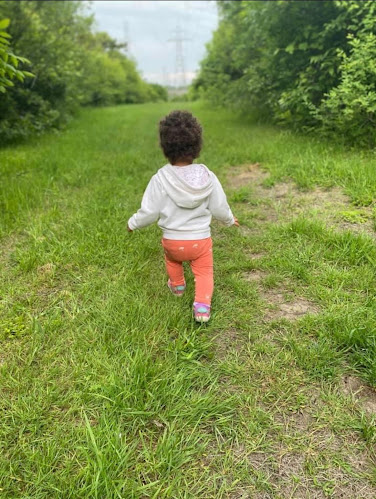Assessing Goodness
Sometimes, being good can be so hard. For real. People really test your patience and expect you to just fold your arms and watch. Sometimes, you even find yourself at crossroads, “will doing good be in my best interest or will doing a bad thing just this once suffice?”
Welcome to Limitless!
I’ve been cogigating on the subject of goodness, an enigma I’ve not fully wrapped my head around yet. So many rhetorical questions have been flying in my head; am I really a good person? Then, there are actual questions such as Are humans inherently good or bad? Can a good person do evil and remain a good person? How do we even assess goodness? Sigh. There’s definitely a lot to unpack here.
First, let’s discuss the second question, “Can a good person do evil and remain a good person?”. Sometime ago, I asked the question on my Instagram story. I got quite a number of intelligent answers.
One person responded with “no one is good”. I immediately knew that this answer was not a straight answer to the question I asked, instead, it was an answer to the existential question of determining if humans are good or bad which is a different topic. Anyway, I asked for the reasoning behind their statement and they explained. Then, we discussed some basis.
Interestingly, I got a take from another person on the question. It says:
“This is a conundrum and your question poses a moral quandary. Evil is synonymous to an unlawful act or omission.
It is impossible to tender an answer to this without a perusal of the jurisdictional sphere and laws. Evil is mostly reserved as what is contained in the criminal/penal code of any given jurisdiction and an evil person is characterized by such. On the other hand, a Good person is perceived as a morally upright individual.
To what circumstance would one be considered to have not changed from being good to evil is a matter of law to be candid. Sani Abacha was known for being evil, he was "allegedly" killed and the nation celebrated his demise, meaning the people felt mollified from acts of a supposed savior from a draconian administration, but does that take away the act of killing? I don't think so.
Even the ROBINHOOD folklore, it was alleged that he acquired from the wealthy to bequeath to the poor. From the people affected, it was an unwavering act of benevolence while to the deprived, it was a crime (an act of evil).
I would opine and approve of the school of thought of Oliver Wendell Holmes to reserve to the court the power to determine the good and the evil, without leaving out any mitigating factor” (Olowofila, D. 2023).
I submit that a good person can do evil and still remain a good person though.
First, consider this- if a good person killed an agent in self-defense, does it make her evil?
Yes, the nature of the act is evil but the intent was to protect herself from extreme harm.
Also, some policies or actions might seem evil prima facie but the long-term results render the agents who executed them good. (Consider a lower-class Nigerian living from hand-to-mouth who had to close business during the lockdown.)
Ultimately, the subject of goodness and morality hangs tightly on the intent, nature and consequences of a person's action.
As you have rightly said, the court determines the validity of good and evil after assessing all factors for issues tendered.
I would say that my discussion here with this person is almost exhaustive. Now, you can see the answer to the question from our lens. Do you have a different opinion?
In my retort, I mentioned that the subject of goodness hangs tightly on the intent, nature and consequences of a person’s actions. This statement answers the question of “how do we assess goodness?”
This question is in fact the reason behind the various schools of thought and branches in ethics and philosophy. As another matter of fact, the question has been a discourse stretched across decades. (In order not to sound too complex, I would be using morality in place of ethics😁).
For instance there is a branch of morality called consequentialism. It rests on the idea that the goodness or badness if an action is determined solely by its consequences.
A thinker, Holland, describes the concept as “the right thing to do is that which will bring the best consequences, and the wrong thing to do is that which will not”.
I always find myself leaning more and more to this ism. To determine whether an action is good, let us weigh the consequences. Did it benefit or harm others? Does the good outweigh the bad or the other way around?
OR do you think the goodness of an action should be weighed by the action itself? You probably have a deontological view. According to YourDictionary, the theory states that “the morality of an action should be based on whether that action itself is right or wrong under a series of rules, rather than based on the consequences of the action” (your dictionary.com). This explains the view of Olowofila, who ended his statement by agreeing that the court should decide whether actions are in accordance with its rules.
Do you know there is even a school of thought that holds that the ethical thing to do is whatever is in our own rational self-interest. It’s called ethical egoism. This school of thought always makes my eyebrow lift in question.
Now, to the biggest question, “are human beings inherently good or bad”. My answer which is entropy arguable is that human beings are inherently bad. I will not be explaining the basis for my claim. My argument in answer to this question is quite copious and I’m afraid I will not be able to cover it in this post. Maybe, just maybe, I would write about it sometime later.
Okay, back to the question I asked on my Instagram post, if you are rude to me, does morality call for not dishing the same right back at you because it could inflict emotional harm if done in excess? Should I not because I am a right-thinking human capable of walking away or handling the situation better? What if I'm just safeguarding my own emotional and mental health?
Well, if we were in such a place as a workplace where bullying and harassment is prohibited, deontology would say I would be wrong if I dished the same right back at you. An ethical egoist would say I should dish the same right back since it is in my rational self-interest. Then, again, won’t a rational being consider the consequences?
On the other hand, a consequentialist would say that if dishing the same right back will bring the best consequences such as proving my self-worth, then, it would be the right thing to do.
~
In all these, the fruit and spirit of goodness has been given to me by the Holy Spirit i.e. God, such that, though my human nature always wants me to retaliate, I keep quiet instead.
~
You took a peek into my mind today! Thank you so much for reading. Till we meet again.🌹






Comments
Post a Comment